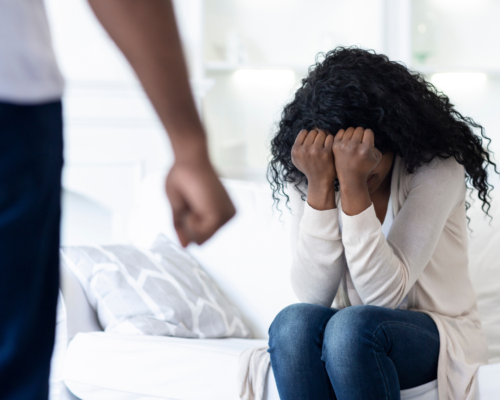California’s Stipulations of Domestic or Spousal Battery

Domestic or spousal battery charges in California are a serious matter with far-reaching legal implications. Understanding the details of this crime, especially as outlined in California Penal Code 243(e)(1), is crucial for anyone facing such accusations.
We want to outline the consequences of domestic battery charges, common defenses against such charges, and the importance of seeking legal representation from an experienced Los Angeles domestic battery defense lawyer.
Understanding California Penal Code 243(e)(1)
California Penal Code 243(e)(1) defines domestic or spousal battery and establishes the legal framework for addressing offenses committed within specific relationships. The law identifies individuals such as spouses, cohabitants, parents of the defendant’s child, former spouses, fiancés, fiancées, or those in a current or past dating or engagement relationship.
Key elements of this statute include the requirement that the accused must have engaged in a willful act of violence against someone in the specified relationships. This differentiates domestic battery from other forms of assault, highlighting the importance of the relationship between the parties involved.
Consequences of Los Angeles Domestic or Spousal Battery Charges
A conviction under California Penal Code 243(e)(1) carries severe legal consequences. Offenders may face fines up to $2,000, imprisonment in a county jail for up to one year, or a combination of both. Moreover, probation conditions mandate participation in a batterer’s treatment program for no less than one year. The impact extends beyond the courtroom, affecting personal and professional aspects of the accused individual’s life. Restraining orders may be issued, potentially influencing child custody arrangements and visitation rights.
Common Defenses Against Domestic or Spousal Battery Charges
Defending against domestic or spousal battery charges requires a careful examination of the specific circumstances surrounding the case. Here are common defenses that a Domestic Violence Criminal Defense Attorney may employ on behalf of clients facing charges under California Penal Code 243(e)(1):
- Self-defense: Arguing that the accused acted in self-defense or defense of others. This defense requires demonstrating that the accused reasonably believed there was an imminent threat of harm and that their actions were necessary to protect themselves or someone else.
- False accusations: Demonstrating that the allegations are untrue and presenting evidence that contradicts the accuser’s version of events. This defense may involve witnesses, alibis, or digital evidence that supports the accused’s innocence.
- Lack of willful intent: Arguing that the accused did not act willfully or with the intent to cause harm. This defense focuses on establishing that any physical contact was accidental, unintentional, or lacked malicious intent.
- Mistaken identity: Asserting that the accused was misidentified as the perpetrator of the alleged domestic battery. This defense relies on evidence that proves the accused was not involved in the incident.
Understanding the nuances of each defense is crucial, as they address different aspects of the case. False accusations, for instance, may involve demonstrating that the accused did not commit the alleged act of violence. Lack of willful intent, on the other hand, could hinge on proving that the actions were not purposeful or malicious.
The Importance of Legal Representation
Navigating charges under California Penal Code 243(e)(1) requires the specialized knowledge and guidance of an experienced domestic violence defense attorney. These legal professionals play a critical role in building a strategic defense tailored to the unique circumstances of each case. They understand the complexities of the law, differentiating factors that may impact the case, and potential defenses to mitigate the consequences.
For anyone facing domestic or spousal battery charges, seeking legal representation is not just advisable—it’s essential. Your criminal defense attorney can assess the details of your case, explore viable defense strategies, and work toward the best possible outcome.
Let’s Start Crafting Your Defense
If you’re confronting domestic or spousal battery charges, don’t hesitate to contact the domestic violence defense attorneys at Werksman Jackson & Quinn LLP to protect your rights and future. Our Los Angeles criminal defense lawyers are known for their record of success, and we’re here to stand as your dedicated legal ally.
Call us at (213) 688-0460 today to learn more about your legal rights and options with a free consultation.
Contact Us
“We can handle any criminal case.
Anywhere. Anytime.”
What Our Clients Say
Previous Testimonial Next Testimonial- “Alan Jackson is hands down the best attorney we have worked with. Extremely professional, well liked in the court system and respected amongst all legal professionals. Took our calls at any given time and made himself available all the time.” - S.F. From Google Reviews
- “Perpetually impressed by the professionalism, thoroughness, follow through, and expertise that Mark Werksman, his fellow partners, and associates / admin staff all produce whenever I interact with them, professionally.” - Dru S.
- “Kelly is a brainiac. She's a certified criminal law appellate specialist - a rare achievement and qualification- and she fits into a very unique niche in criminal law. Her primary role at her firm (one of, if not THE best criminal defense firm in los angeles) is research and writer...” - Joseph W.
- “Having Alan Jackson as my lead attorney on 3 separate cases (one felony, and two misdemeanors) was the best decision of my life. I was facing 6-8 years in prison, and he was able to have all three charges dismissed. He's got the skills, connections, and the charisma to aid anyone in any situation...” - Anonymous